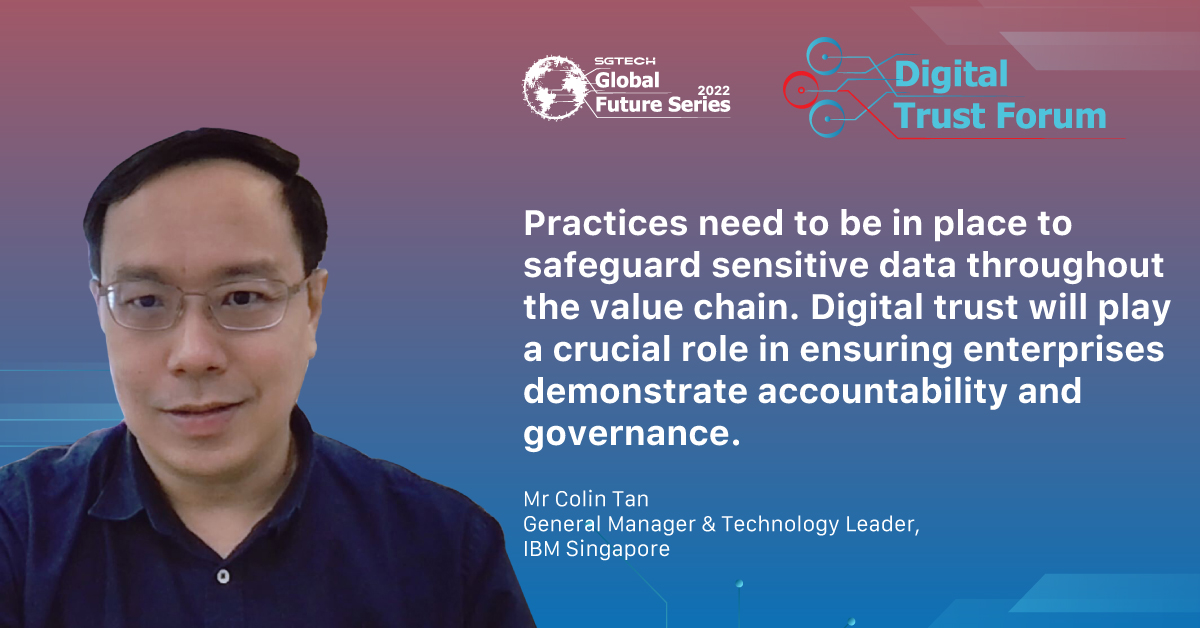
What’s Digital Trust & Why Does It Matter?
Trust has always been the foundational cornerstone of Singapore’s success. As the country transforms its economy and society to be increasingly digital, it is vital to uphold, build and foster trust in our online dealings and help position us as a global digital hub. However, this is easier said than done.
That’s because the level of trust in all sectors of society has collapsed. In many leading democracies, institutions are trusted by less than half of their citizens, according to the results of the 2022 Edelman Trust Barometer that polls 36,000 respondents in 28 countries every year to determine trust levels.

Erosion of Trust
In Singapore, scams have led to erosion of trust according to multiple surveys published in the media. Online job scams, phishing scams, e-commerce scams, investment scams, impersonation scams, and loan scams almost doubled in H1 2022 year-on-year. Gaming addiction among children has risen from 40 to 60 per cent, while 33 per cent of people said they were aware of deep fakes, nonetheless, they may have inadvertently shared them on social media.
The paradox: Despite Personal Data Protection Act (PDPA), growing investments in cybersecurity, and the shift towards “zero-trust architecture,” there remains a pressing need for companies to embed trust intentionally into all their digital transactions. But before that, how do we define digital trust?
Simply put, digital trust is the confidence that digital participants need to have to interact safely, securely, in a transparent, accountable and possibly frictionless manner. For citizens, this ensures that their online interactions are secure, private, transparent, accountable, and frictionless. For businesses, it demonstrates their competence and commitment to their stakeholders’ interests to facilitate more digital transactions. For governments, it fosters a thriving ecosystem where all stakeholders’ rights are safeguarded, and data exchange becomes seamless, so as to drive digital services and online trade.
SGTech commissioned the Eden Strategy Institute to conduct a global landscape study on digital trust. The Institute identified digital trust challenges such as misuse of data, misleading user interfaces or “dark patterns” that trick users into doing something they don’t want to, unclear or inconsistent standards and regulations across different jurisdictions in Asia, and a general lack of cyber-awareness among both citizens and businesses in Singapore.
Trust Ecosystem
How can organisations foster a climate of trust in transactions? Singapore has recently introduced several initiatives to grow the digital trust ecosystem, ranging from digital trust R&D centres and sandboxes to cybersecurity training and data governance frameworks. However, to boost digital trust in Singapore, the study has identified four enablers that should work in unison to reinforce each other: